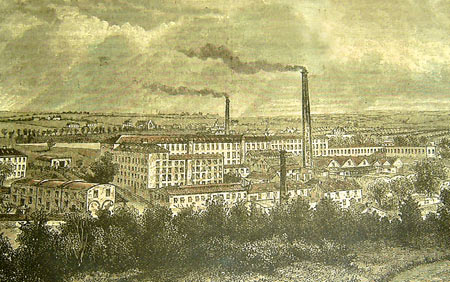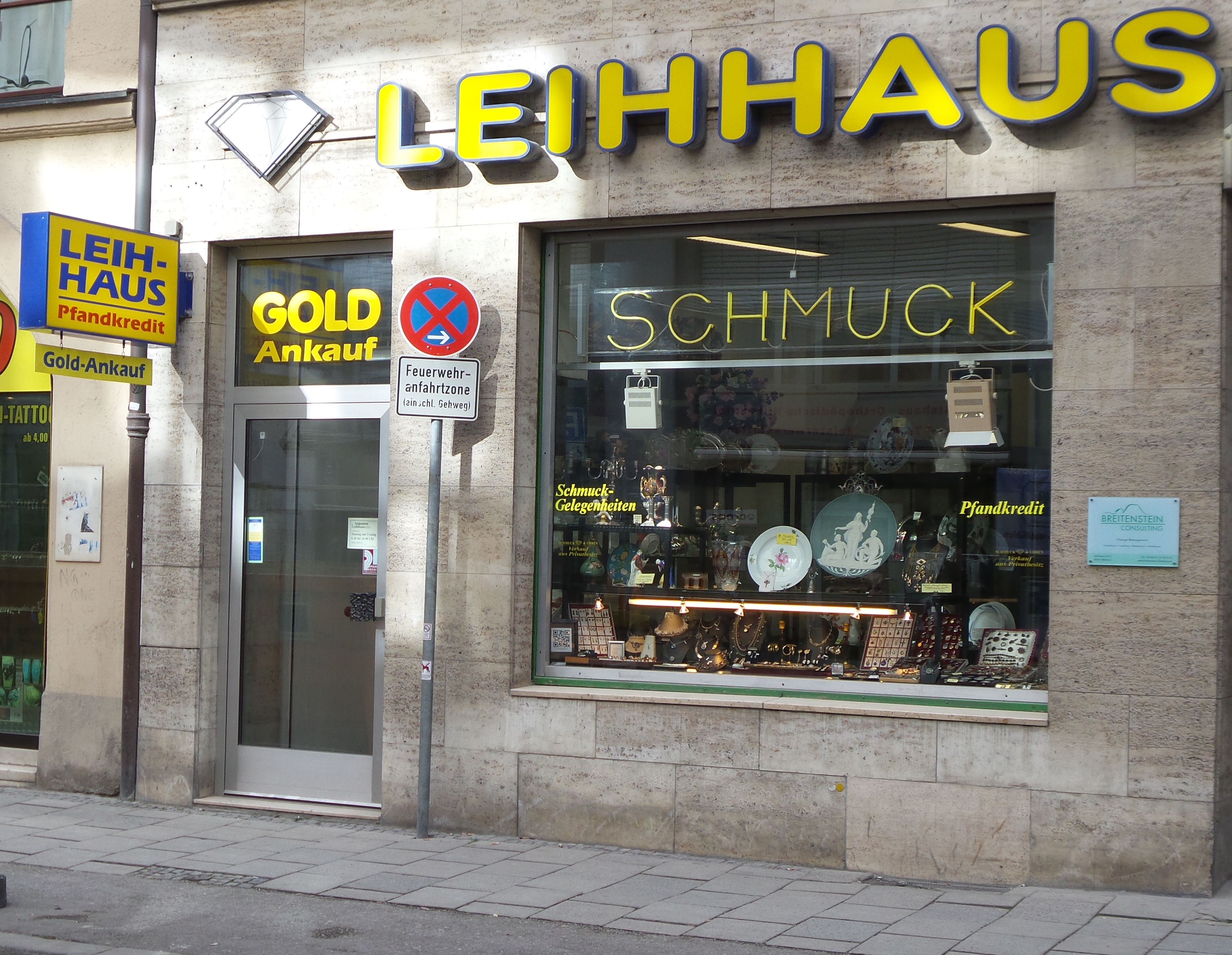|
John Grubb Richardson
John Grubb Richardson (13 November 1813 – 1891) was an Irish linen merchant, industrialist and philanthropist who founded the model village of Bessbrook near Newry in 1845, in what is now Northern Ireland. Five years later he founded a major Atlantic steamship line that significantly improved conditions for immigrant passengers fleeing Ireland after the Great Famine. He also founded Richardson Fertilizer Limited that remained in business under its original name until 2002. Richardson was the second of ten children of James Nicholson Richardson (1782–1847), a wealthy Quaker linen merchant, and Anna Grubb, from a large Quaker family in Clonmel. The Richardson family originally came to Ireland from England in 1622 and the Grubb family also came from England in 1656. John Richardson was raised at Glenmore House, outside Lisburn, County Antrim. At the age of eleven, he boarded for three years at Ballitore, County Kildare (the same Quaker school attended by Edmund Burke) before ... [...More Info...] [...Related Items...] OR: [Wikipedia] [Google] [Baidu] |
United Kingdom Of Great Britain And Ireland
The United Kingdom of Great Britain and Ireland was a sovereign state in the British Isles that existed between 1801 and 1922, when it included all of Ireland. It was established by the Acts of Union 1800, which merged the Kingdom of Great Britain and the Kingdom of Ireland into a unified state. The establishment of the Irish Free State in 1922 led to the remainder later being renamed the United Kingdom of Great Britain and Northern Ireland in 1927. The United Kingdom, having financed the European coalition that defeated France during the Napoleonic Wars, developed a large Royal Navy that enabled the British Empire to become the foremost world power for the next century. For nearly a century from the final defeat of Napoleon following the Battle of Waterloo to the outbreak of World War I, Britain was almost continuously at peace with Great Powers. The most notable exception was the Crimean War with the Russian Empire, in which actual hostilities were relatively limited. How ... [...More Info...] [...Related Items...] OR: [Wikipedia] [Google] [Baidu] |
James Nicholson Richardson
James Nicholson Richardson (7 February 1846 – 11 October 1921) was an Irish Liberal politician who sat in the House of Commons from 1880 to 1885. Richardson was the son of John Grubb Richardson of Lisburn, County Antrim and Bessbrook, County Armagh, and his first wife Helena Grubb, daughter of Richard Grubb of Cahir Abbey, Tipperary. He was educated at home until 1857 and then at Grove House Academy, a Quaker school in Tottenham.Emily Boyle, ‘Richardson, James Nicholson (1846–1921)’, Oxford Dictionary of National Biography, Oxford University Press, 2004; online edn, Jan 200accessed 6 Dec 2010/ref> His mother died in 1849 during childbirth and his father remarried Jane Marion Wakefield; through the Wakefield family the Richardsons inherited their estate at Moyallon House, Gilford, County Down. At the 1880 general election Richardson was elected Member of Parliament for Armagh and held the seat until 1885. He was a supporter of the interests of the tenant farmers of Ire ... [...More Info...] [...Related Items...] OR: [Wikipedia] [Google] [Baidu] |
American Line
The American Line was a shipping company founded in 1871 and based in Philadelphia, Pennsylvania. It began as part of the Pennsylvania Railroad, although the railroad got out of the shipping business soon after founding the company. In 1902, it became part of the International Navigation Co., with the American Line generally handling traffic between the United States ports of Philadelphia and New York City and the British ports of Liverpool and Southampton. Sister company Red Star Line handled traffic between America and the European continent, primarily through Antwerp, Belgium. The company's most prominent president was Clement Griscom, who led the company from 1888 to 1902 and worked as a company executive for its entire existence. During its existence, the company was the largest American shipping company, rivalled only by the smaller, Baltimore-based Atlantic Transport Lines, although this distinction is a marginal one, as all American oceanic shipping concerns were dwarfed ... [...More Info...] [...Related Items...] OR: [Wikipedia] [Google] [Baidu] |
Crimean War
The Crimean War, , was fought from October 1853 to February 1856 between Russia and an ultimately victorious alliance of the Ottoman Empire, France, the United Kingdom and Piedmont-Sardinia. Geopolitical causes of the war included the decline of the Ottoman Empire, the expansion of the Russian Empire in the preceding Russo-Turkish Wars, and the British and French preference to preserve the Ottoman Empire to maintain the balance of power in the Concert of Europe. The flashpoint was a disagreement over the rights of Christian minorities in Palestine, then part of the Ottoman Empire, with the French promoting the rights of Roman Catholics, and Russia promoting those of the Eastern Orthodox Church. The churches worked out their differences with the Ottomans and came to an agreement, but both the French Emperor Napoleon III and the Russian Tsar Nicholas I refused to back down. Nicholas issued an ultimatum that demanded the Orthodox subjects of the Ottoman Empire be placed ... [...More Info...] [...Related Items...] OR: [Wikipedia] [Google] [Baidu] |
Steerage
Steerage is a term for the lowest category of passenger accommodation in a ship. In the nineteenth and early twentieth century considerable numbers of persons travelled from their homeland to seek a new life elsewhere, in many cases North America and Australia. Many of those people were destitute in their homeland and had the minimum of resources to procure transportation. The term later widened to imply the lowest category of accommodation on a passenger vessel. Steerage class travel Steerage refers to the lowest possible category of long-distance steamer travel. It was available to very poor people, usually emigrants seeking a new life in the New World, chiefly North America and Australia. In many cases these people had no financial resources and were attempting to escape destitution at home. Consequently they needed transportation at an absolute minimum cost. In many cases they provided their own bedding and food. Steerage was very cramped and there was hardly any room for fres ... [...More Info...] [...Related Items...] OR: [Wikipedia] [Google] [Baidu] |
Inman Line
The Inman Line was one of the three largest 19th-century British passenger shipping companies on the North Atlantic, along with the White Star Line and Cunard Line. Founded in 1850, it was absorbed in 1893 into American Line. The firm's formal name for much of its history was the Liverpool, Philadelphia and New York Steamship Company, but it was also variously known as the Liverpool and Philadelphia Steamship Company, as Inman Steamship Company, Limited, and, in the last few years before absorption, as the Inman and International Steamship Company. By embracing new technology, Inman Line became the first to show that unsubsidized ocean liners could profitably cross the North Atlantic. With its first steamer, of 1850, Inman led the drive to replace wood-hulled paddle steamers with iron-hulled screw-propelled ships. In 1852, Inman established that steerage passengers could be transported in steamships. Inman's of 1866 was the first screw liner that could match the speed of the p ... [...More Info...] [...Related Items...] OR: [Wikipedia] [Google] [Baidu] |
William Inman
William Inman (6 April 1825 in Leicester – 3 July 1881 in Upton, Wirral) was the owner of the Liverpool, New York and Philadelphia Steamship Company. Also known as the Inman Line, it ran services from Liverpool to New York and Philadelphia, in the United States, for emigration in the mid-19th century. He was the fourth son of Charles Inman. He became the owner of Upton Manor, in the grounds of Upton Park and held the title Lord of the Manor of Upton. A benefactor to his local community, Inman donated funds for the construction of Christchurch, Moreton Moreton may refer to: People Given name * Moreton John Wheatley (1837–1916), British Army officer and Bailiff of the Royal Parks Surname * Alice Bertha Moreton (1901–1977), English sculptor, draughtsman and artist * Andrew Moreton, a p ... and St. Mary's Church, Upton. Inman married in 1849 Anne Brewis Stobart, daughter of William Stobart of Picktree. He died at Upton Manor in 1881 and was buried at Moreton Pari ... [...More Info...] [...Related Items...] OR: [Wikipedia] [Google] [Baidu] |
SS City Of Glasgow 1850
SS is an abbreviation for ''Schutzstaffel'', a paramilitary organisation in Nazi Germany. SS, Ss, or similar may also refer to: Places *Guangdong Experimental High School (''Sheng Shi'' or ''Saang Sat''), China *Province of Sassari, Italy (vehicle plate code) *South Sudan (ISO 3166-1 code SS) *SS postcode area, UK, around Southend-on-Sea *San Sebastián, Spanish city Arts, entertainment, and media *SS (band), an early Japanese hardcore punk band * ''SS'' (manga), a Japanese comic 2000-2003 *SS Entertainment, a Korean entertainment company *''S.S.'', for Sosthenes Smith, H. G. Wells pseudonym for story ''A Vision of the Past'' *SS, the production code for the 1968 ''Doctor Who'' serial ''The Wheel in Space'' *''Sesame Street'', American kids' TV show Language * Ss (digraph) used in Pinyin * ß or ss, a German-language ligature * switch-reference in linguistics *''Scilicet'', used as a section sign * (''in the strict sense'') in Latin *Swazi language (ISO 639-1 code "ss") Scienc ... [...More Info...] [...Related Items...] OR: [Wikipedia] [Google] [Baidu] |
Pawn Brokers
A pawnbroker is an individual or business (pawnshop or pawn shop) that offers secured loans to people, with items of personal property used as collateral. The items having been ''pawned'' to the broker are themselves called ''pledges'' or ''pawns'', or simply the collateral. While many items can be pawned, pawnshops typically accept jewelry, musical instruments, home audio equipment, computers, video game systems, coins, gold, silver, televisions, cameras, power tools, firearms, and other relatively valuable items as collateral. If an item is pawned for a loan (colloquially "hocked" or "popped"), within a certain contractual period of time the pawner may redeem it for the amount of the loan plus some agreed-upon amount for interest. In the United States the amount of time, and rate of interest, is governed by law and by the state commerce department policies. They have the same license as a bank, which is highly regulated. If the loan is not paid (or extended, if applicab ... [...More Info...] [...Related Items...] OR: [Wikipedia] [Google] [Baidu] |




